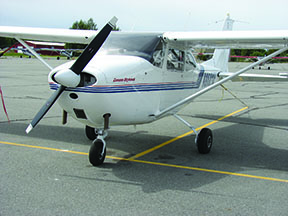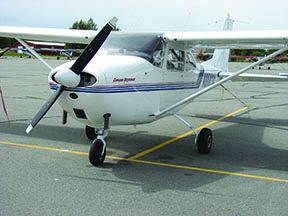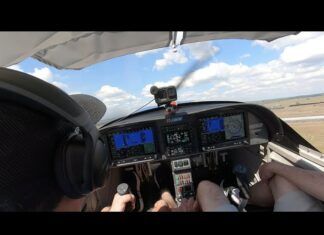I just received an e-mail from an acquaintance outlining the stunningly bad experiences he had with airplane rental at an FBO near his new home. He loves to fly but according to more than one pilot, the only FBO near him is utterly indifferent to its rental fleet and customers. He’s about to take his considerable discretionary recreation money and spend it on something else.

With all of the hand-wringing we do about pilots who quit flying, I’ve wondered why one of GA’s significant business problems—crummy, unprofessional rental experiences—continues unabated. I’ve watched too many pilots quit flying because the only operator in the area made the rental experience a pain in the whatsis rather than fun.
Sure, renting is expensive, but it’s cheaper than ownership. Yes, I’ve heard the constant background bitching about the high price of the rental airplanes that has been going on since the Wrights opened a flight school. It will never stop.
In reality, every pilot I know was aware from the beginning that flying wasn’t cheap. Invariably, they were willing to pay for what they thought was going to be a heck of a lot of fun. Too often what they got was an operator who considered airplane rental a losing proposition and only did it because it was required under the airport’s FBO contract. Too many times the airplane interior was filthy, the squawk sheet hadn’t been addressed for weeks, upon getting to the airport they were told, “Oh, yeah, the airplane broke yesterday, it should be back on the line tomorrow” or walked out to find an unairworthy airplane.
At the risk of coming up with a cliché “bill of rights” for renters, there are some basic, reasonable customer expectations that an FBO should meet with its rental business. I’m not advocating a concierge-style arrangement, just that the business should be customer-friendly, professional and profitable—the rental rate must be at a level that will generate a profit for a well-run business, pilot complaining notwithstanding.
The airplanes should be clean, inside and out.If an airplane goes out of service, the upcoming people on the schedule should be contacted immediately so they don’t waste a drive out to the airport. If there is another airplane available and the pilot is qualified for it, even if $10 or $20 more per hour, it should be offered to the customer at the rate of the airplane that he was scheduled to rent.
Customers should be encouraged to note squawks and they should be worked off as soon as possible.
Refurbish interiors every few years. There’s nothing wrong with old airplanes. Nevertheless, the customer is stepping up to pay for a quality rental; airplanes of any age should work we’ll and look good.
Have a system in place so that a pilot who will be carrying a full cabin load can make certain the airplane isn’t topped off just before her turn to use it.
Make it convenient and secure to depart or return outside office hours.
Have a comfortable area for passengers to wait, with clean rest rooms.
Make it easy to understand how your insurance is set up and be honest in explaining what your renters might want to do to further protect themselves.
Make it fun. Do such things as organize, not pay for, a monthly evening at a local restaurant so renters can socialize with others of like interests. Make sure one of your instructors is there to talk up flying and be a mentor. Use social media to alert users to events they might like or would want to rent one of the airplanes to attend.
Pilots who have good experiences come back and help make the rental business profitable and an integral part of a successful FBO. —Rick Durden


